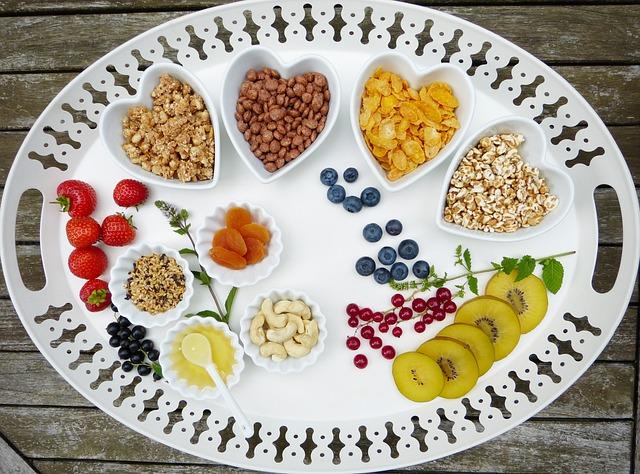In the modern culinary landscape, processed foods have carved out a significant place on our plates and in our pantries. From the quick convenience of a frozen dinner to the irresistible crunch of a potato chip, these foods have become both a staple and a subject of scrutiny. As we navigate the aisles of our local supermarkets, the question looms large: should processed foods be completely avoided? This inquiry invites us to explore beyond the simplistic dichotomy of good versus bad, delving into the complexities of nutrition, lifestyle, and modern food production. Join us as we unravel the multifaceted relationship between processed foods and our daily lives, examining both the advantages and pitfalls of these ubiquitous edibles.
Understanding Processed Foods and Their Role in Modern Diets
In the complex landscape of contemporary eating habits, processed foods often find themselves at the center of debate. While some advocate for their complete exclusion from diets, it’s crucial to recognize their multifaceted role in modern nutrition. Processed foods range from minimally altered items like frozen vegetables to highly refined products such as sugary snacks. These foods offer significant conveniences, like extended shelf life and time-saving meal preparation, which are particularly valuable in fast-paced lifestyles. Additionally, many processed foods are fortified with essential vitamins and minerals, contributing to nutritional intake that might otherwise be lacking.
However, not all processed foods are created equal, and understanding this spectrum is vital. Here are a few considerations when evaluating their place in your diet:
- Ingredients: Look for products with minimal additives and preservatives.
- Nutritional Content: Choose options that provide beneficial nutrients, like fiber and protein.
- Portion Control: Moderation is key to maintaining a balanced diet.
By making informed choices, processed foods can coexist with whole foods, creating a balanced approach to nutrition that accommodates both health and convenience.

Nutritional Pros and Cons: What Processed Foods Offer
In the realm of processed foods, there’s a delicate balance of nutritional advantages and disadvantages. On the pro side, these foods often offer convenience and enhanced shelf life, making them a staple for many busy households. Certain processed foods are fortified with essential nutrients, which can help individuals meet daily nutritional requirements. For example, breakfast cereals and plant-based milks often come enriched with vitamins and minerals, such as vitamin D, calcium, and iron. Additionally, food processing can sometimes make nutrients more bioavailable, like lycopene in tomatoes, which becomes more accessible to the body when processed into sauces or pastes.
However, the cons cannot be overlooked. Many processed foods contain high levels of added sugars, sodium, and unhealthy fats, which can contribute to a range of health issues, including obesity, heart disease, and hypertension. Moreover, the presence of artificial additives and preservatives can be concerning for those seeking a more natural diet. These foods might also lack dietary fiber, which is crucial for digestive health. Thus, while processed foods can offer nutritional benefits, it is essential to be discerning and opt for those with a more favorable nutrient profile, ensuring they complement a balanced diet.

Health Implications of Completely Avoiding Processed Foods
While the allure of entirely sidestepping processed foods may seem like a pathway to optimal health, it’s important to consider the nuanced effects such a choice may have on your well-being. On the positive side, minimizing processed food intake often results in a reduction of harmful additives, such as excess sugar, unhealthy fats, and sodium, which are known contributors to various health issues. Additionally, avoiding these foods encourages a diet rich in whole foods like fruits, vegetables, and grains, which are abundant in essential nutrients and antioxidants.
However, completely eliminating processed foods could lead to unintended nutritional gaps. Many processed foods are fortified with vitamins and minerals that might be challenging to obtain solely from whole foods. Moreover, certain processed options, like canned beans or frozen vegetables, offer convenience without compromising nutritional value. Consider the following potential impacts of a total exclusion:
- Loss of Convenience: Preparing every meal from scratch can be time-consuming and challenging for individuals with busy schedules.
- Nutrient Deficiency: Fortified foods contribute to daily nutrient intake, such as iodine from salt and B vitamins from fortified grains.
- Social and Economic Factors: Accessibility and affordability of fresh produce can be a limiting factor for some communities.
Ultimately, the decision to avoid processed foods entirely should be balanced with an understanding of both their potential downsides and the practical realities of modern living.

Balancing Your Diet: Practical Tips for Consuming Processed Foods
Finding a middle ground with processed foods can be a practical approach to maintaining a balanced diet. Instead of completely eliminating them, consider incorporating them wisely. Here are a few strategies to make processed foods a part of your diet without compromising on health:
- Read Labels Carefully: Understanding the ingredients and nutritional content can help you make informed choices. Look for items with fewer additives and lower sodium and sugar content.
- Portion Control: Enjoy processed foods in moderation. Use them to complement whole foods, ensuring they don’t dominate your meals.
- Opt for Better Options: Choose minimally processed items like whole grain bread or natural peanut butter, which offer more nutritional value than heavily processed alternatives.
Balancing processed foods with fresh produce, lean proteins, and whole grains can enhance your diet’s nutritional profile without feeling deprived. By being mindful of what you consume, you can enjoy the convenience of processed foods while prioritizing your health.
In Conclusion
As we reach the end of our exploration into the realm of processed foods, it becomes evident that this topic is as layered as the foods themselves. While some processed foods provide convenience and necessary nutrition, others raise questions about health impacts and dietary choices. The decision to embrace or avoid processed foods is deeply personal and hinges on individual health goals, lifestyle, and values.
In this culinary landscape, knowledge is power. By understanding the intricacies of what we consume, we empower ourselves to make informed decisions that align with our unique needs. Whether you choose to indulge occasionally or opt for fresh alternatives, the key lies in balance and mindfulness.
As we close the lid on this discussion, remember that the journey of nutrition is a personal one. With every choice, we craft our own narrative of health and well-being. So, as you navigate your own path, may you do so with curiosity, wisdom, and a sprinkle of joy.


































